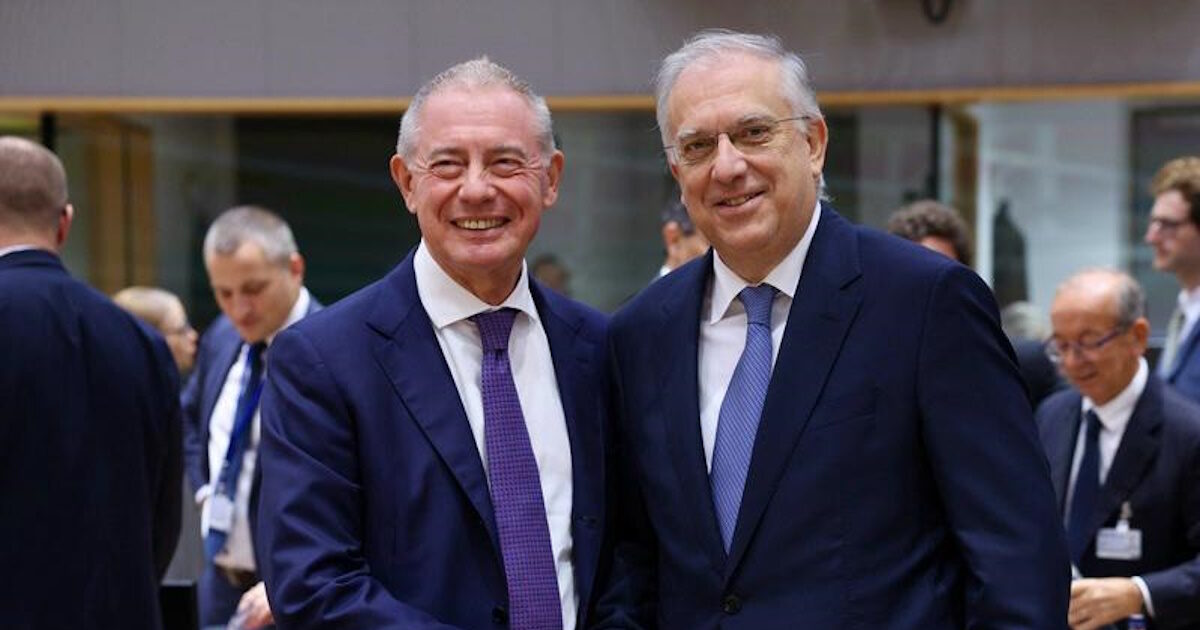Minister of Development Takis Theodorikakos participated in the European Union Cabinet of the European Union in Brussels today (29.9.2025) with a central discussion of the Competitiveness Fund and its support. industry and small and medium -sized businesses.
In his speech, Mr. Theodorikakos said that “on behalf of our homeland we insisted on the need to ensure the strong funding of industry, innovation and especially small and medium -sized enterprises” and added: “The aim is a new productive model with its social and peripheral inequalities, Legislative in nature. “
In the context of negotiations on the European level, the Minister of Development submitted a six -point proposal:
- Participation of all states and fair distribution of resources
- Mobilization of all financial tools
- Support of industry and innovation
- Support of SMEs
- “Bridge” program between the Reconstruction Fund and the Competitiveness Fund
- Ensuring Member States on security issues against third-country companies.
Earlier, Mr. Theodorikakos participated in the meeting on the official Declaration of the Member States alliance promoting the design of Chips Act 2.0 for semiconductors, at the Netherlands initiative.
In his position, the Minister of Development emphasized: “We fully support the proclamation of the Member States Coalition for the design of Chips ACT 2.0 and emphasize the great importance of enhancing industrial and generally of the semiconductor ecosystem, with the aim of ensuring the European Union. The Chips ACT initiative was a first major step, but real success will depend on our ability to go collectively with determination. “
Mr Theodorikakos also stressed that the EU must have sufficient resources to strengthen the industrial ecosystem, covering the entire value chain – from planning to production – by utilizing all available financial tools, including the European Competitiveness Fund.
At the same time, he recalled that Greece has already taken decisive steps for domestic reinforcement of the sector, with the decision to finance the Hellenic Centre Center (HCCC), in collaboration with the Hellenic Technologies Association (HETIA).
The HCCC, with a national participation of € 3.63 million, which complements European funding, is a strategic investment in research, innovation and training of specialized human resources, putting Greece on the map of European Policy Policy.
With this dual move-participating in the Member States alliance for Chips ACT 2.0 and the establishment of HCCC-Greece proves that it is actively involved in major technological developments and claims an essential role in a industry that defines the future of industry and economy.
Following is the full speech of Mr. Theodorikakos in the Council of Competitiveness:
“The debate on the European Competitiveness Fund is critical to the European future, amid uncertainty, increased social inequalities and serious problems in major European economies. While large issues of strategy for the security of the European Union states are raised.
The decisive enhancement of competitiveness is a prerequisite for maintaining the level of life of Europeans, social cohesion, which is a pillar of stability and existence of the European Union. All financial tools are required to enhance the industrial base, innovation and applied research. Support especially in energy -intensive industries tested by energy commercial geopolitical crises.
We find it absolutely necessary to involve the Member States in the Governance of the Fund. With clear mechanisms transparent processes and effective monitoring. So that there is a fair distribution, with respect to the principles of cohesion and improving the business environment. This requires the allocation of resources to help reduce inequalities between states and support years of strategic importance in all regions of Europe.
Continuing serious projects that will not be done by the recovery fund is a challenge that can be implemented with a bridge with the Competitiveness Fund.
Special forecast is required to support small and medium -sized enterprises and participate in technological modernization and productive transformation of economies, as well as special credit lines for the Union’s specific industrial policies.
Clear safeguards are also required to involve economic operators from third countries, especially when it comes to the security of the Member States of the Union. This is the Greek perspective for the European Competitiveness Fund to be a tool for a stronger, safe, productive and socially cohesive Europe. “
